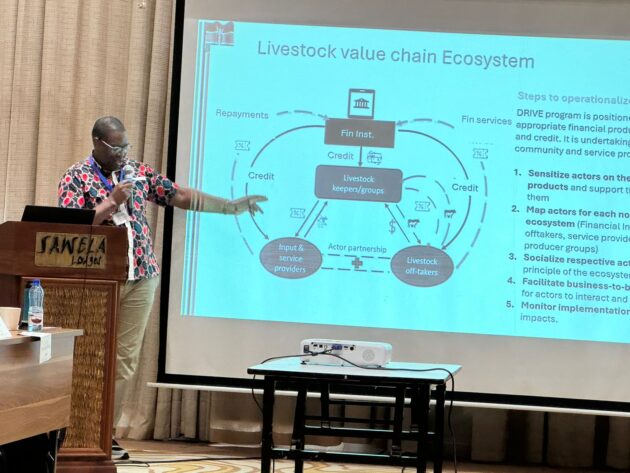
Kenya Taps Private Sector To Expand World Bank’s DRIVE Model, Boost Financial Inclusion in Pastoral Markets » Capital News
NAIROBI, Kenya, Oct 22 – The Kenyan government is actively seeking private sector involvement to expand the De-risking, Inclusion, and Value Enhancement of Pastoral Economies in the Horn of Africa (DRIVE) Project, a World Bank-led initiative designed to mitigate disaster risks in pastoral areas.
By providing asset protection in the form of index-based livestock insurance, the program focuses on keeping animals alive during droughts rather than offering compensation for their loss—a groundbreaking shift in how pastoral communities manage risk.
Maurice Ouma, the DRIVE Project Coordinator at Kenya’s State Department of Livestock Development, said the insurance was initially introduced as part of the Kenya Livestock Insurance Programme (KLIP).
Under KLIP, he pointed out that the insurance model was heavily subsidized by the government.
“We prevent the animal from dying, not compensating for its death. This form of asset protection ensures that pastoralists can sustain their livestock during droughts by receiving payouts to buy hay and water,” said Ouma.
As the program gains momentum, he said the goal is to transition this service to the private sector, making it a sustainable, self-financing model.
“The challenge is making this insurance affordable once it moves into the private sector,” Ouma added, noting that full privatization would remove the financial burden from the national treasury.
So far in 2024, over 138,000 households—representing more than 800,000 people—have benefited from the DRIVE project, with coverage for more than 500,000 livestock.
This means that, in the event of a drought, these animals are protected, ensuring the survival of key assets for pastoral livelihoods.
The project recently expanded to nine additional counties, bringing coverage to 21 arid and semi-arid land (ASAL) counties in Kenya.
“We have concluded registration for the current season and will do another for the January season,” said Ouma.
The DRIVE Project covers Kenya, Djibouti, Ethiopia and Somalia.
According to the World Bank, the project will enable $572 million in private capital to help pastoralists tap into drought insurance and savings, get access to digital accounts, and attract more private investment in pastoral areas.
In the financial year 2024/2025, Ouma revealed that the Kenya Development Corporation (KDC) had received , “a total DRIVE pipeline of Sh5.4 billion at various stages of the appraisal process
Ouma was speaking during the ongoing four-day African Pastoral Markets Development (APMD) Platform Technical Pillar Planning and Stakeholder Engagement workshop in Naivasha.
The workshop brings together experts and key stakeholders from Kenya, Somalia, and Ethiopia to chart a transformative path for Africa’s pastoral communities.
The APMD Platform aims to drive market-led transformations in pastoralism, a vital livelihood for millions across the continent.
The African Union Inter-African Bureau for Animal Resources (AU-IBAR) is hosting the event that has been funded by the Bill & Melinda Gates Foundation.
Rewrite the article to link DRIVE with APMD. Emphasize the need for financial inclusivity in APMD as it has been with DRIVE.
About The Author